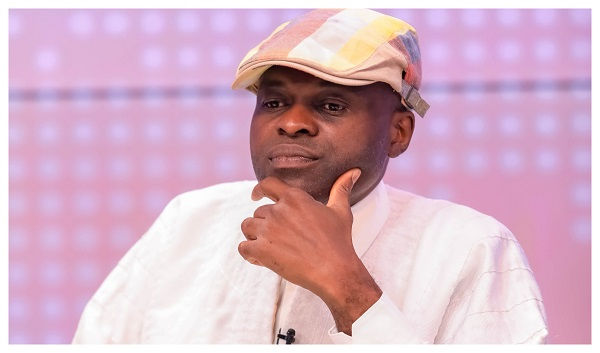Tanzania leads Africa's mineral agenda as Bunge ends - Daily News
AS Tanzania approaches the October 2025 presidential and parliamentary elections, preceded today by the dissolution of the 12th Parliament by President Samia Suluhu Hassan, it is important to reflect on the milestones achieved under her leadership and the Sixth Phase Government.
Among these milestones, the Geita Gold Refinery (GGR) stands out for its pivotal role in strengthening Tanzania’s gold industry and advancing economic transformation, reaffirming the country’s position on the global gold map.
For those unfamiliar with recent developments in the gold mining sector and the broader mining industry, GGR is a remarkable achievement. It is locally owned and the first refinery in the country led by a Tanzanian female entrepreneur, Sarah Masasi.
Financed by local banks, GGR reflects the strength of domestic capital and leadership in driving national industrialisation and value addition. Ms Masasi’s success powerfully illustrates how gender barriers in the maledominated mining sector can be dismantled while generating significant national economic value.
Under President Samia’s leadership, Tanzania has gained global recognition for its commitment to the Responsible Minerals Initiative (RMI), especially in gold refining. This progress is enhancing Tanzania’s reputation as a reliable and responsible player in the global minerals market.
The recognition of the RMI by the London Metal Exchange (LME)-the world’s leading industrial metals trading platform demonstrates the country’s increasing compliance with global gold sourcing and trading standards. Research shows GGR is in the final stages of securing these certifications, and its participation in the RMI audit process has already established it as one of Africa’s most compliant refineries.
From its inception, GGR has aimed to be Africa’s second refinery accredited by the London Bullion Market Association (LBMA). This ambition is backed by a clear vision, significant investment in advanced equipment, skilled personnel and regular international compliance audits. GGR has obtained five ISO certifications and passed rigorous audits by RMI, Lloyd’s of London insurance security assessments and StoneX compliance checks. These achievements position GGR as one of Africa’s most technologically advanced and fully automated gold refineries, aligning with President Samia’s vision of economic diplomacy.
As President Samia dissolves the 12th Parliament, Tanzanians should reflect on the significant economic progress made during her sixth phase, notably in the mining sector and gold trading industry, including milestones related to GGR.
Research indicates Africa exports over 1,000 tonnes of gold annually through legal channels, yet an estimated additional 435 tonnes are smuggled, accounting for over half of the global gold output. Despite this, Africa has only one LBMA accredited refinery. GGR’s pursuit of LBMA membership during Dr Samia’s tenure presents an opportunity to close this gap and position Tanzania as the continent’s premier gold refining hub.
Once LBMA accreditation is secured, Tanzania will not only refine its own gold but also attract gold from other African countries seeking reliable, transparent and secure processing. This will enhance Tanzania’s international reputation and draw significant business, especially from nations facing political instability.
GGR’s integration into international markets, supported by responsible sourcing certifications, will solidify Tanzania’s role in the global gold value chain. Continued support for GGR’s growth and global positioning is essential.
A key contribution of GGR is its empowerment of small-scale and artisanal miners, historically marginalised and exploited by middlemen and illicit traders. GGR provides these miners access to fair, transparent and efficient gold processing services. With a processing capacity of up to 600 kilogrammes daily and 15 kilogrammes every 8 to 15 minutes, GGR drives local beneficiation and mineral value addition.
From a mining economics perspective, GGR addresses governance challenges in the artisanal and small-scale mining (ASM) sector by ensuring gold is processed legally and ethically. This curbs smuggling and illicit activity while strengthening Tanzania’s fiscal base through proper taxation and transparent accounting.
Significantly, the collaboration between GGR and the Bank of Tanzania (BoT) reinforces this ecosystem. A recent landmark agreement allows Geita Gold Mining Limited (GGML) to sell 20 per cent of its gold production directly to the government through GGR. This initiative supports shilling stability, guarantees a steady gold supply for domestic refining, boosts gold reserves and increases value retention from mineral wealth.
Under BoT Governor Emmanuel Tutuba, Tanzania is advancing toward building its gold reserves and achieving economic independence. The partnership between GGR, GGML and BoT supports President Samia’s agenda to strengthen gold reserves and local value addition. By refining more gold domestically, Tanzania reduces reliance on raw exports and gains greater control over the gold value chain. This strategy will enhance currency stability and shield the economy from external shocks.
GGR’s ability to secure local bank financing, rather than relying solely on international credit, demonstrates a successful model of domestically funded industrialisation. Having worked over ten years in the financial sector, I see this as evidence of growing confidence in Tanzania’s banking industry, aligning with President Samia’s vision for sustainable, inclusive and locally driven growth.
Examining inclusive economic engagement, GGR has shattered gender ceilings and leads Africa’s participation in the Global Responsible Minerals Initiative within mining by setting gender and industrialisation milestones. Ms Masasi’s leadership is not just a business success but a landmark for gender inclusion in Tanzania’s extractive and industrial sectors. As the country’s first female refinery owner, she advances the national goal of dismantling systemic gender barriers.
This achievement is timely, as Dr Samia’s administration deliberately expands women’s participation across all economic sectors. Ms Masasi’s success at GGR exemplifies what women can achieve when supported, setting a precedent for future female entrepreneurs in heavy industry and extractives.
The industrial policy of Samia’s government aligns closely with GGR’s operations. By promoting local gold refining, Tanzania transitions from an extractive economy to one focused on value addition. This shift increases job creation in high-value sectors, boosts industrial capabilities and strengthens negotiating power in global mineral markets.
GGR’s advancements are a model of responsible mining processing in Africa and a source of national pride, especially in gold. Its certifications and adherence to OECD, LBMA, Anti-Money Laundering (AML), and RMI standards make GGR a leader in responsible mineral processing.
This compliance builds international buyer trust, boosts Tanzania’s export competitiveness and enhances the country’s appeal as a gold trading partner. For small-scale miners, access to GGR means better prices, fairer terms and global market access through a transparent, compliant supply chain.
Strategically, GGR anchors local beneficiation, retains more gold value nationally, increases reserves and promotes responsible sourcing, reshaping Tanzania’s gold economy. Its success also proves women can lead in industrial sectors and drive economic transformation.
With the 2025 elections near, Tanzanians have every reason to celebrate this achievement as part of the broader progress under President Samia’s visionary leadership.











